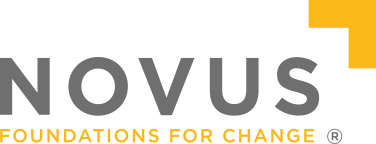How Functional Skills Positively Influence Rehabilitation
Adult Provision Digital English & Maths

With many individuals entering the prison system with no prior qualifications, it’s crucial that we engage them in education during their sentence so that they can be equipped with the tools needed to be successfully rehabilitated upon release.
English, maths and digital are the fundamental skills that are needed in every aspect of daily life and work. However, with many individuals having low abilities in these key areas, it can make it difficult to find employment opportunities without turning to crime.
What are functional skills in prisons?
Functional skills courses teach the English, maths and digital skills learners need to function as a member of society. These courses are designed to help learners reintegrate into society, improve employability and function independently in daily life.
Teaching functional skills in prisons
At Novus, English, maths and digital skills are taught in all the prisons where Novus provide the education provision. These skills make up the fundamental pillars of our education offer, and we are dedicated to ensuring all learners are equipped with the qualifications needed to be successful upon release.
English
With an estimated 57% of adult learners having literacy levels below those expected of an 11-year-old, it is crucial that we engage as many learners as possible in English so that they can gain the basic skills needed to navigate through daily life.
At Novus we deliver our English provision in prisons from Entry Level 1 to Level 3 and opportunities to progress beyond giving learners of all abilities and education levels the opportunity to engage in our English provision at a level that works for them. This also includes our specialist ESOL (English for Speakers of Other Languages) provision.
As well as our traditional English classes, we offer learners opportunities to engage in literacy through a wide range of projects and initiatives. One of the main ways we do this is through our reading provision. Reading gives learners the opportunity to develop essential literacy skills, expand their knowledge and find enjoyment in learning.
At Novus we place a particular importance on our reading strategy at each site we work at. From tailored education plans, one-to-one support and reading screeners, we have been able to engage more learners in reading than ever before and supporting them to increase their functional skills in English.
Maths
Maths is an essential subject that is required by many employers. Without a qualification in maths, employment and education opportunities will be severely limited. This is why we engage as many learners as possible in our maths provision, so that they are equipped with the qualifications and skills needed to find employment upon release.
At Novus we deliver our maths provision in prisons from Entry Level 1 to Level 3 and opportunities to progress beyond. By engaging in our maths provision, learners are able to develop their practical skills, gain an essential qualification and increase their confidence in self-belief.
Digital
Digital skills are now essential to navigate through daily life as society becomes more reliant on technology and digital skills. However, with prisoners being isolated from the digital world and the advancements in technology, it can put them at a digital disadvantage upon release.
This is why, we engage learners in essential digital skills so that they can gain the knowledge and skills needed to thrive in modern society.
Integrating English, Maths and Digital Skills into our wider curriculum offer
We embed functional skills into our wider curriculum offer so that learners can further develop their English, maths and digital skills.
We embed these skills in our vocational and technical provision as well as our creative enrichment provision, so that all learners are able to gain their essential skills in English, maths and digital, whilst also engaging in education in a way that meets their individual needs.
The role of functional skills in prison rehabilitation
Functional skills can have a significant impact on the successful rehabilitation of offenders in a multitude of ways such as:
Improved literacy and numeracy skills
Many learners enter prison with low literacy and numeracy levels. Engaging in our functional skills classes enables learners to obtain these skills, closing their skills gaps and giving them a higher chance of finding employment upon release.
Employment opportunities
Qualifications in English, maths and digital skills are often essential for securing employment. If learners are able to obtain these qualifications whilst in prison, they will be equipped with the skills and qualifications needed to find employment upon release and reduce reoffending.
Reducing reoffending
Research indicates that people who participated in education whilst in prison were significantly less likely to reoffend within 12 months of release than those who had not taken part. Prison education plays an integral role in reducing reoffending and helping learners find employment upon release, which is why we try to engage as many prisoners as possible in our education offer.
Functional skills and employability after release
Finding employment upon release is integral to the successful rehabilitation of offenders. However, without the fundamental skills in English, maths and digital, offenders will find it difficult to find employment opportunities.
Improving English, maths and digital skills helps learners prepare for life beyond prison, whether that’s searching and applying for jobs, starting an apprenticeship or managing their own finances. Through functional skills courses, learners will gain the fundamental skills needed to find a job upon release, as well as gain confidence in themselves and their newfound skills and abilities further inspiring them to make a positive change, and become well-rounded members of society.
Learn more with Novus
At Novus, we see every day how education can change lives.
That’s why we’re proud to deliver functional skills courses in prisons across the UK – helping people build confidence, gain qualifications, and look ahead to a better future.
If you’d like to know more about how we support rehabilitation through learning, take a look at our prison education and training provisions.


